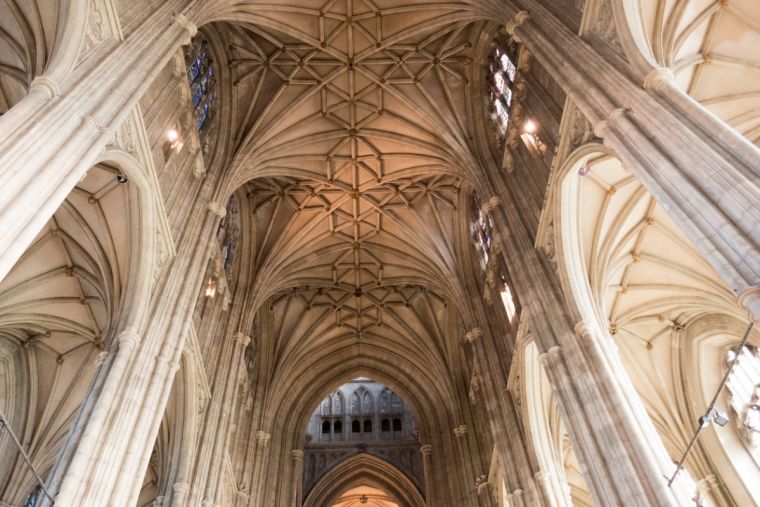
Dawkins’ admiration for “cultural” Christianity is not new. What has changed is the dawning realisation of how much we have lost.
The Christian internet was set ablaze with comments from uber-atheist Professor Richard Dawkins on Easter Sunday. He said he considers himself a “cultural Christian” and that he values the traditions of the faith.
Many commentators did not realise that his words by themselves are not new – Dawkins has been describing himself like this since 2007, although he still adamantly disbelieves in God. What he means is that he likes Christmas carols, beautiful cathedrals, and he is fond of the meek and mild version of Anglicanism that once prospered in this country.
But the cultural atmosphere has changed significantly since then, when the books of the “new atheists” like Dawkins and Christopher Hitchens were bestsellers. Today there is more public discussion of Christian contribution to civilisation, and a few famous people have become believers, such as Ayaan Hirsi Ali, a friend of Dawkins.
The decline of the West seems to have prompted nostalgia about the past as well as genuine concern that something very important has been lost. For some, such as Ali, there seems to have been more than just a desire for the cultural effects, but a personal faith too. I have previously argued that Christianity only matters if it is true – and the powerful transformations it can bring in individuals who do believe is one manifestation of its power, as well as evidence of its truth.
In the interview with LBC, released on Easter Sunday, Dawkins said he enjoyed “living in a culturally Christian country although I do not believe a word of the Christian faith.” This includes the virgin birth and the resurrection, he said. “The things that Christians believe are actually nonsense.” The interviewer, Rachel Johnson, discussed her own wrestling with faith and the miraculous claims of Christianity. The full interview is available on YouTube.
Dawkins was also not changing his tune when he made critical comments about Islam and its treatment of women and gay people. “If I had to choose between Christianity and Islam, I’d choose Christianity every single time,” he said. “It seems to me to be a fundamentally decent religion, in a way that I think Islam is not.”
What has changed though, is his awareness of the reality that Islam is now being promoted in the UK in some places, such as lights for Ramadan on Oxford Street, or messages from Islamic scriptures on train station noticeboards – both occurred during the Christian period of Lent, for which there was no similar promotion. Dawkins said he was “slightly horrified” about this and that he supported Christianity as a “bulwark” against Islam. He seems nostalgic for the culture of Christendom, and he has previously spoken against the rise of extremes of modern “woke” ideology, too.
Multiple Christians pointed out that Dawkins himself has contributed to the change he is lamenting. Memes flourished about sawing off the branch you are sitting on, sticking a branch in the wheels of the bike you are riding, or the cartoon “I want things to be different” who then utters “oh no” when observing the wreckage caused. Some did not pull their punches: “Evidence yet again that the great professors can be absolute morons,” said conservative commentator Laura Perrins on X. “He has done so much damage to Christianity, cultural and otherwise. Did he really think nothing would fill the void?”
However it could be said that Dawkins hasn’t really contributed that much to the decline. The poor arguments of his ilk have in some people prompted a move towards faith, and caused other positive effects such as sharpening the Church’s intellectual capabilities. The deterioration of Christian belief in the UK has been gradual and a long time coming: writers CS Lewis and GK Chesterton, for example, predicted the trajectory many decades ago. Dawkins’ personal contribution has been minimal.
What is also new is a more widespread questioning of the dogma of progressivism – the relentless pursuit of improvement while sidelining or completely rejecting tradition, which in practice has often included Christian belief. This momentum is perceived as a good thing by most people today, unaware that it is a fairly new idea: previous generations were more respectful of their history. Attempts to re-engineer an imaginary “better world” often lead to unforeseen consequences, as Dawkins seems to be learning as he mourns the loss of Christian culture while rejecting the tenets that had created and sustained it.
Esme Partridge in Unherd slammed Dawkins comments as “naivety”. She argued his attitude is similar to another huge social change: his generation’s stance on the sexual revolution. They personally benefitted from the old morals, yet at the same time put the future availability of such positive effects in question by attacking their foundations.
“Dawkins’s belief that it is possible to reap the cultural benefits of Christianity while publicly undermining its legitimacy is perhaps an expression of this generational mentality,” she wrote. This was also the attitude of Enlightenment thinkers such as Locke and Montesquieu, who believed that liberal values would be upheld without Christianity. Partridge points out that this has been shown to be false too, as they have mutated into “anarchic systems of self-interest which undermine the virtues upon which liberalism was originally premised.”
She adds her voice to the calls for a renewal. “Like any organism, Christianity must recover its roots, or it will die — a fact of life which, as an evolutionary biologist, Dawkins ought to appreciate,” she said.
Of course, faithful Christians live on, and have been debating and praying about these issues for years, well before Dawkins came on the scene. As society’s lamentations grow, and the negative effects become starker, can anyone show the way back?
Heather Tomlinson is a Christian journalist. Find her on Substack at http://heathertomlinson.substack.com